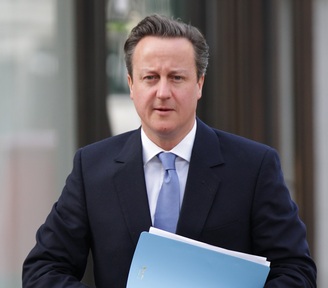One million people in the UK trialling smartwatches to detect early signs of dementia
Alzheimer’s Research UK has launched a global initiative to revolutionise the early detection of neurodegenerative diseases like Alzheimer’s disease.

The project will be trialled by a million people in the UK and includes wearing a smartwatch style device to detect early signs of dementia by using artificial intelligence to monitor more than 30 indicators, such as speech, gait, fine motor skills and sleep.
President of Alzheimer’s Research UK, David Cameron said: “I strongly believe we are on the cusp of a revolution in how we detect the brain diseases that cause dementia and radically improve the lives of the millions on families facing these heart-breaking diseases.
“Early and accurate diagnosis will give future treatments the head-start they need to succeed. Early Detection of Neurodegenerative diseases (EDoN) brings together those at the forefront of this early diagnosis movement.
“During my time as Prime Minister, I witnessed first-hand the devastating impact of dementia on families and made a personal commitment to transform the pace of research efforts across the globe."
The initiative is a collaboration between Alzheimer’s Research UK and organisations including the Alan Turing Institute, University College London, and Newcastle, Exeter and Cambridge universities.
The collaboration aims to secure £100m of total investment by 2030 to build and trial its diagnostic device on a large scale. Initial funds towards the initiative have already been secured from Bill Gates and Iceland Foods Charitable Foundation.
Minister for Care, Caroline Dinenage called it an "incredibly exciting initiative which has the potential to bring together global partners to transform how we treat dementia as well as to live well with it."
Diseases like Alzheimer’s, the most common form of dementia, can start to develop up to two decades before symptoms of dementia begin to show and researchers agree future treatments and preventions will have the greatest benefit when given as early as possible in the disease.
With potential new treatments for early Alzheimer’s on the horizon, Alzheimer’s Research UK believes that now is a critical time to act to identify very early brain changes in diseases like Alzheimer’s.
'This is an incredibly exciting initiative which has the potential to bring together global partners'
Carol Routledge, director of research at Alzheimer’s Research UK, added: “Our research shows that 85 per cent of UK adults would be willing to take a test that could tell them if they were in the early stages of a disease like Alzheimer’s, even before symptoms show.
"Developing digital fingerprints that can be detected using phone apps or wearable technologies like smartwatches would provide a low-cost approach to identifying those most at risk of disease.
“Identifying the very earliest changes in these diseases would transform research efforts today, giving us the best chance of stopping these diseases before the symptoms of dementia start to get in the way of life.”
In December 2018, the UK Government committed £79m through the Life Sciences Sector Deal 2 to create the Accelerating Detection of Disease cohort. As a partner on that project, Alzheimer’s Research UK plans to use the cohort to validate technologies emerging from EDoN on a scale that’s not been possible before.
Like what you read? For more news click here and you can listen to our latest podcast ‘Let’s Talk About Care’ by clicking here
Latest News
 29-Jul-24
Dementia Bus gives carehome.co.uk staff insight into life with dementia
29-Jul-24
Dementia Bus gives carehome.co.uk staff insight into life with dementia
 01-Mar-24
Find out the top care homes in 2024
01-Mar-24
Find out the top care homes in 2024
 21-Mar-23
UK's top care homes in 2023 revealed
21-Mar-23
UK's top care homes in 2023 revealed
 03-Jan-23
carehome.co.uk launches free care helpline
03-Jan-23
carehome.co.uk launches free care helpline
 13-Dec-22
5 mins with Emily Whitehurst, chief operating officer for Constantia Healthcare
13-Dec-22
5 mins with Emily Whitehurst, chief operating officer for Constantia Healthcare